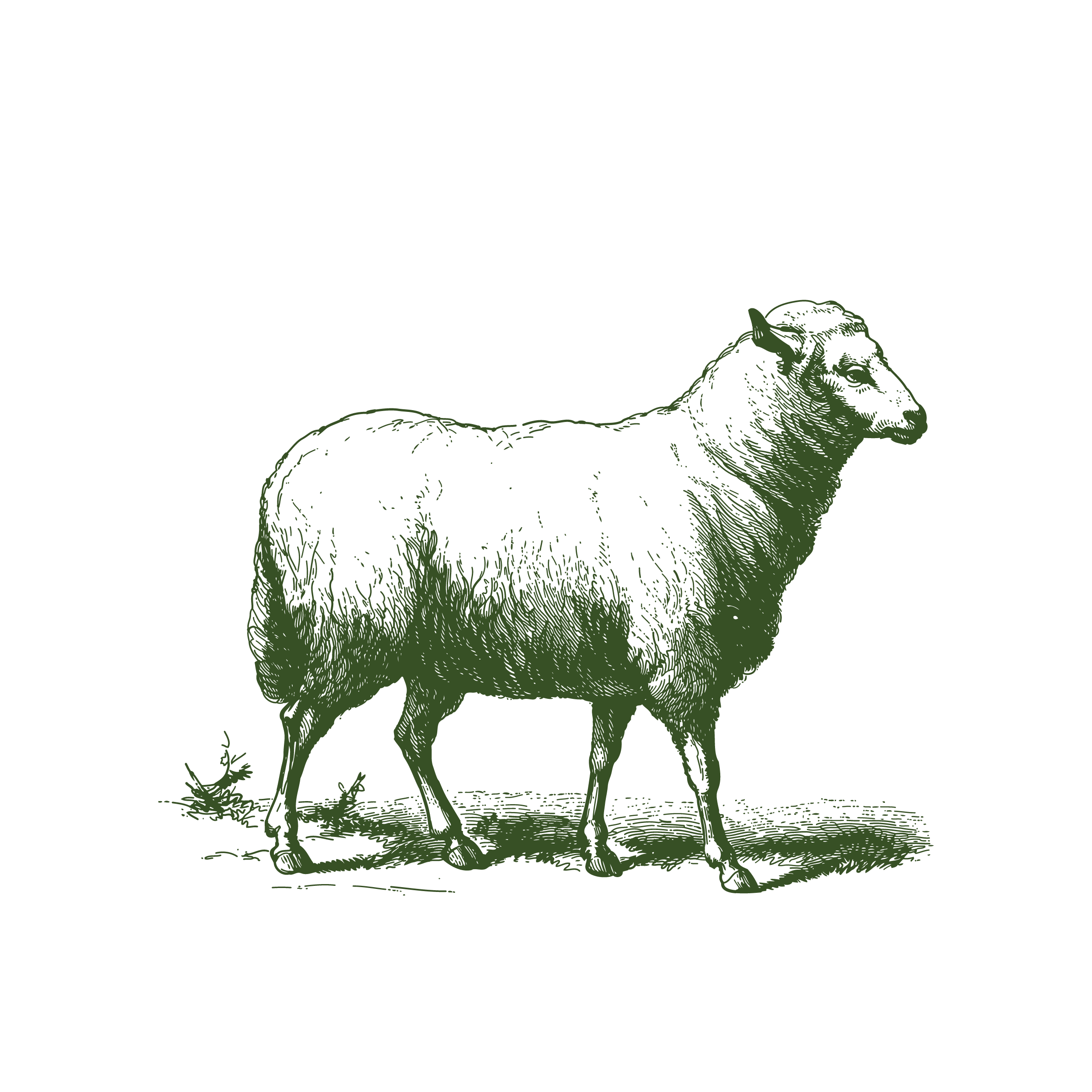Bare soil doesn’t exist in nature, so it doesn’t exist on our farm.

Regenerative farming goes beyond sustainable farm practices. It's a commitment to renew soil health, revitalize the nutrient density of food, and restore rural communities with reverence for the land. We believe in land use that supports all living species - human, animal, plant, and microbial - and values each contribution to the larger ecosystem. By allowing nature to be nature, we gain more space for regeneration of soil life, for restoration of plant and animal biodiversity, and for reconnection with creation.
Bare soil doesn’t exist in nature, so it doesn’t exist on our farm.
Diversity is vital to soil health. That’s why we plant multiple crops together on the same parcel of land.
Chickens are a big part of our farm family – they purify our pastures as they range.
All of our cows graze freely on grassy pasture. We rotate them daily.
All elements of nature must exist in order to produce healthy plants and animals that contribute to optimal health and function of the human body. Plant-based proteins, like peas, beans and other small grains, absolutely require the integration of animals to fertilize the land and cycle nutrients to renew soil in a natural way. Beneficial species that live and grow in healthy soil make these nutrients more available to plants, which strengthen their ability to combat weed and pest pressures that hinder crop growth. Ultimately, this method creates the most nutritionally dense plant and animal proteins for human consumption without use of pesticides, synthetic fertilizers, antibiotics or hormones. This promotes soil renewal while simultaneously raising animals and crops in the most sustainable, ethical and healthy way possible.

Grass fed Beef
We raise purebred shorthorn cattle who are well known for their gentle demeanour and excellent maternal instincts. We believe in calm, quiet, respectful handling of animals, which ensures stress free interactions. Reducing stress in animals contributes to overall health and to enhanced taste and tenderness. We rotate cattle to new paddocks daily ensuring consumption of a variety of grasses at peak nutritional value. Hooves on the ground help to incorporate uneaten plant matter and manure nutrients thereby fertilizing soil and stimulating plant root growth, creating even more nutritionally dense pasture. Cattle enjoy winter rotational grazing and eat stockpiled perennial grasses, cover crops or by-products from a harvested crop. Raising cattle in this manner greatly reduces the need for fossil fuels used in haymaking and compost handling. This decreases our farm’s environmental impact and increases overall sustainability of raising annual crops and livestock.

Grass fed Lamb
Sheep contribute similarly in rotational grazing systems. By adding multiple animal species to our pastures, we increase our farm’s biodiversity. Sheep tend to eat what cattle may consider unpalatable, thereby utilizing more forage and balancing our multispecies pastures. Sheep and cattle are also end hosts for many of each other’s parasites. This, along with proper animal nutrition and holistic management practices, is how we raise our animals without antibiotics or hormones.

Pastured Chickens & Eggs
You will find broilers and hens grazing in our fields. As part of our rotational grazing system, they are allowed to forage naturally and share the same pastures as cattle and sheep. They are also incorporated into our crop operation by grazing grass waterways, field buffers and harvested cropland. This purifies the soil of unwanted pests that are detrimental to livestock and crop health. Along with ruminants, chickens add fertilizer to the land throughout their travels. They are moved to new grass twice daily and are protected from predators. To ensure a balanced diet, they are fed free choice premium non-GMO feed.

Raw Honey
Cattle, sheep and chickens are certainly not the only foraging species required to regenerate soil and plant life within an ecosystem. Bees are excellent foragers and they play a tremendous role in the health and productivity of our farm. They transfer pollen and nectar from one flower to another, fertilizing the plant so that a fruit, containing seeds, can develop. We have many flowering plant species available for pollination. Permacultures and multispecies cover crops keep our bees healthy and productive. We do not use pesticides that are harmful to bee populations. Unpasteurized, raw honey has many health benefits and is known for its anti-oxidant, anti-inflammatory and anti-bacterial properties.

Legumes & Small Grains
Our goal is to produce the most nutritious plant proteins possible by encouraging diversity of plant and animal species on the land. The crops we grow depend on vibrant soil to produce nutrient dense food high in vitamin and mineral content. We promote soil health on our fields through several management practices. Zero tillage on our farm has enhanced insect and microbial life, virtually eliminated soil erosion and improved water quality of local lakes, rivers, and streams. Annual crops are planted as multi species intercrops, as opposed to monocultures. Growing annual crops in this way greatly contributes to farm diversity, reduces overall pest pressure, and is a cornerstone of sustainable, organic, plant-based protein production. Cover crops improve soil health through plant diversity while providing highly nutritious feed for our livestock and absorbing literally tonnes of carbon from the atmosphere each year. Integrating livestock into annual crop production drastically improves the efficiency and sustainability of both systems. After a crop is harvested, animals also cycle nutrients by grazing its by-products or a subsequent cover crop. This reduces or eliminates the need for petroleum-based fertilizers, significantly shrinking the carbon footprint of the crop.
Our succulent chicken falls off the bone. It’s great for a summer barbecue or winter roast.
All of our eggs come from hens who roam freely on pasture, never exposed to antibiotics.
Our steaks are tender and distinctly flavourful. They come from cows treated with respect.
Light and sweet, our honey will brighten up your granola, baked goods, and of course a warm cup of tea.